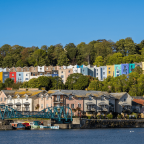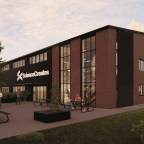
Peter Evans: How can this be levelling up if the South West is left behind?
Listen to Boris Johnson and you might think the South West was about to enter a golden era. As he set out the government’s priorities at the State Opening of Parliament in May, the prime minister promised to put “rocket boosters” under plans to level up the UK economy. The message, heavily briefed in the days leading up to the announcement, was crystal clear: As the Covid-19 recovery kicks in, the Britain that emerges will be one where prosperity is shared across the regions through community-building projects and improved education. To quote the Queen’s Speech, the government “will deliver a national recovery from the pandemic”.
But how national will levelling up actually be? It’s a reasonable question for anyone living or working in the South West to ask because there is a very real danger of the region being left behind. It would not be the first time that has happened.
The problems start with the £4.8bn Levelling Up Fund. This flagship policy is designed to provide investment in infrastructure that will “improve everyday life across the UK”, with funding decided using the Orwellian sounding “prioritisation of places methodology”. The result is a tier system that is skewed heavily towards the so-called Red Wall areas in the Midlands and North of England that delivered the General Election to the Conservatives in 2019 and then helped them perform so strongly in the recent local and mayoral elections. Funny that.
Not so funny if you live in Plymouth, Exeter, Bristol or anywhere in Cornwall. Of the 123 local authorities placed in Category 1, which the government describes as “representing places deemed in most need of investment through this fund”, only four could remotely claim to be in the South West: The Isles of Scilly, Torbay, Torridge and Gloucester. Despite publishing a lengthy explanation of the methodology behind the tier system, it is impossible to see it as anything other than politically motivated. It is certainly a wake-up call for anyone who naively thought the government was serious about spreading prosperity across Britain.
There is already consternation building in some councils. According to the Falmouth Packet, Cornwall Council is considering a legal challenge to the decision not to place it in the top tier. The anger is likely to build further as it becomes clear where the funding is being channelled. Any South West MP who claims to represent their constituents must speak out and hold the government to account.
Where does tech fit into this? It is central to everything that levelling up is supposed to achieve. Only tech-enabled businesses will be able to revive the high street, provide the sort of communication capacity that rebuilds communities and deliver high-quality skills and education to those who need it most. By ignoring the South West in the Levelling Up Fund, the government is potentially preventing life-changing businesses from thriving.
There is no criticism here of those local authorities that made it into Category 1. No one could deny that (to take a random example) Hartlepool deserved top priority for levelling up. But equally, few would argue that parts of the South West deserve some attention. Cornwall has been classified as the second poorest region in Northern Europe by the EU. Some neighbourhoods in Plymouth are among the poorest 4% in England. Rural poverty is a reality for many families.
Sadly, being overlooked is part of a pattern in the South West. Repeated efforts to develop a single voice along the lines of the Northern Powerhouse project have fallen flat. Squabbling local politicians and business leaders must take some responsibility for the failure, but with so little encouragement in Westminster, the lack of progress is hardly surprising.
Matters are not improved by the sun, sea and second homes cliches so often featured in media coverage of the South West. The BBC and most national newspapers have a North of England correspondent, several reporters in Scotland and frequently dedicated staff in Wales and the Midlands. There are very few South West correspondents. That helps project an impression of a region lacking seriousness and purpose that is at odds with the incredible innovation and business growth happening every day. The people building and working for those incredible businesses know the truth. Why doesn’t the government?
Peter Evans is a former reporter and editor at The Sunday Times and Wall Street Journal







